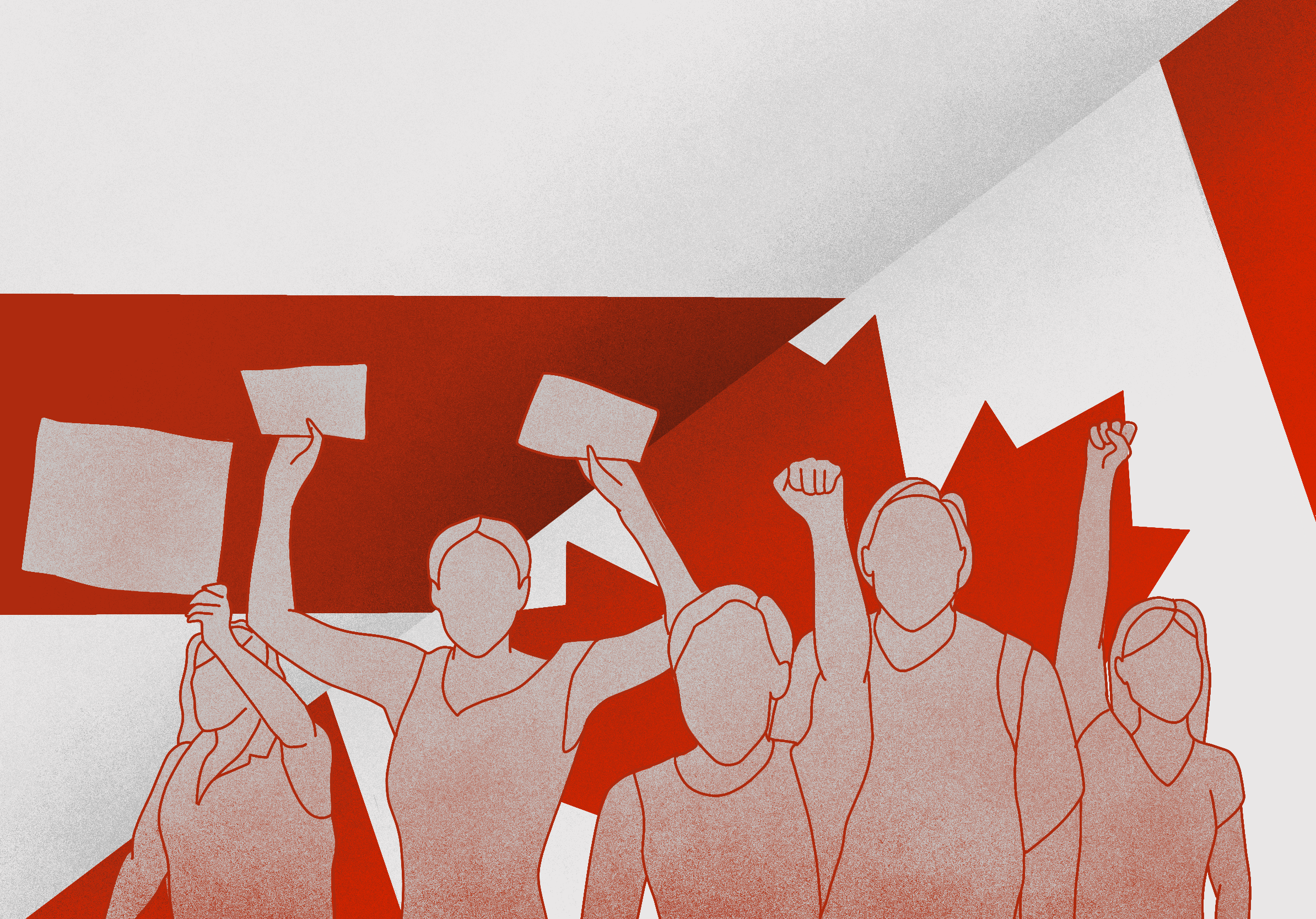The President of Belarus is barred from entering Canada following election fraud and violence against protesters
The people of Belarus have been protesting against their authoritarian leader for 57 straight days, ever since presidential elections took place on Aug. 9. At least seven protesters have been killed since election day, while over 12,000 have been detained for fighting for democracy.
Often referred to as Europe’s last dictator, Alexander Lukashenko has been the leader of Belarus since 1994 and was reelected for his sixth consecutive term with 80.1 per cent of the vote, according to the official results.
As soon as exit polls revealed the winner of the election, an enormous wave of protests spread across the country in support of the opposition leader Svetlana Tikhanovskaya.
In the first few days of demonstrations, peaceful protesters faced aggressive police brutality: torture, tear-gassing, stun grenades, and ruthless beatings of women, students and seniors. In response to such atrocities, almost 400,000 protesters marched down the streets of Minsk on Aug. 16, making it the largest protest in all of Belarus’ history.
Pavel Chuduk, a 30-year-old English teacher and activist, described his experience as a detained protester.
“The police repeatedly hit my kidneys with an electric baton. Because of the shock, I couldn’t stand up, and my lower jaw was paralyzed … About 50-60 people were with me in a tiny room, all screaming from pain and begging for mercy,” Chuduk said in an interview with DW.
In response to such human rights violations, Canada showed its support towards the Belarusian people, together with the European Union and the United States.
Canada’s Minister of Foreign Affairs François-Philippe Champagne announced that Canada does not accept the results of the “fraudulent presidential election” and sent a clear message to the regime on Aug. 17.
“Canada will continue to stand with the people of Belarus, and we will work with our international partners to ensure that their voices are heard and that those responsible for undermining democracy and for brutal actions against protesters are held to account.”
However, the Government of Belarus continued to ignore the democratic rights of its citizens. On Aug. 23, Lukashenko himself was seen hovering in a helicopter over the nation’s capital, with an AK-47 over his shoulder. It was the president’s strategy to intimidate tens of thousands of protesters, whom he referred to as “rats.”
As Lukashenko continued to defy the will of his nation, Canada imposed sanctions on Belarus in coordination with the United Kingdom on Sept. 29.
Under Canada’s Special Economic Measures Act, Lukashenko is now subject to an immediate travel ban and asset freezes, along with his eldest son Viktor and nine other top officials.
“Canada will not stand by silently as the Government of Belarus continues to commit systematic human rights violations and shows no indication of being genuinely committed to finding a negotiated solution with opposition groups,” said Champagne.
Canada and the U.K. are the first Western nations to have imposed sanctions on the Belarusian government. Russia, on the other hand, is willing to send its military support to ensure that Lukashenko stays in power.
Despite facing an almost impenetrable authoritarian regime, Svetlana Tikhanovskaya continues to fight for the nation’s freedom. In fact, three months before the election, the President of Belarus jailed his main opponent Sergei Tikhanovsky for “organization or preparation for a grave breach of public order,” while he was gaining popularity before the Belarusian elections. Then, his wife, a former teacher and stay-at-home mother, found the courage to run for president on behalf of her husband and thus became the new opposition leader.
Although Tikhanovskaya was forced to flee to Lithuania for the safety of herself and her children, she still manages to motivate Belarusians to peacefully protest against the dictatorship. As Canada and the U.K. demonstrate their active support for the opposition, Tikhanovskaya continues to be the symbol of a new and democratic Belarus.
Belarusian pro-democracy protesters still gather in tens of thousands and march down the streets of all major cities, especially in the capital city of Minsk. Their relentless fighting spirit sends one clear message to Lukashenko: his 26-year-old reign is coming to an end.
Visuals by @the.beta.lab




